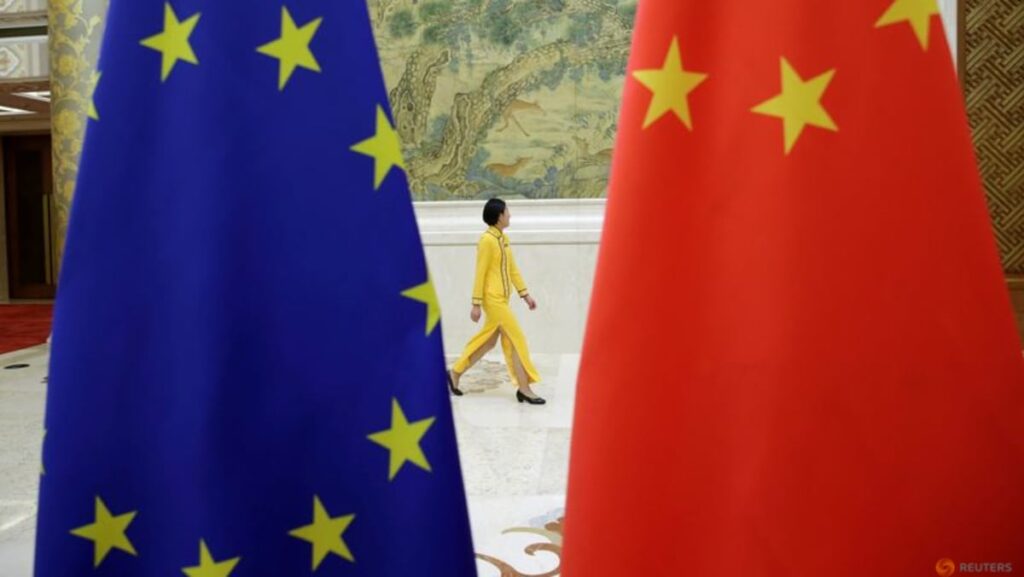SHARES TUMBLE
LVMH-owned Hennessy and Remy Martin were among the brands hardest hit by the measures, with importers having to pay security deposits of 39 per cent and 38.1 per cent, respectively.
The deposits would make it more costly upfront to import brandy from the EU. However, they could be returned if a deal is eventually reached before definitive tariffs are imposed.
Both the investigation and negotiations remain ongoing, said an executive at a leading cognac company, who declined to be identified due to the sensitivity of the matter.
Chinese investigators visited producers in France last month and were due to make further site visits, the executive said, while Chinese and EU officials held negotiations on Monday.
The outcome was unclear, however, and doubts around the EU’s willingness to make a deal were emerging, they added.
Shares in Pernod Ricard were down 4.2 per cent at 08.39am GMT, while Remy Cointreau’s dropped 8.7 per cent and shares in LVMH, owner of Hennessy, fell 4.9 per cent.
Companies that cooperated with China’s investigation were hit with security deposit rates of 34.8 per cent, with that imposed on Martell the lowest at 30.6 per cent.
Pernod Ricard, Remy Cointreau and LVMH did not immediately respond to requests for comment.
The measures could mean a 20 per cent price rise for consumers in China, said Jefferies analysts, reducing sales volumes by 20 per cent.
Remy, with the greatest exposure to the Chinese market, could see its sales decline by 6 per cent, with Pernod group sales seeing a 1.6 per cent impact, they said.
China is the second largest export market for cognac after the United States but is the industry’s most profitable territory. Difficult economic conditions in both markets have already prompted a sharp decline in cognac sales.
James Sym, fund manager at Remy investor River Global, said despite this, there was no sign that demand for cognac had fundamentally changed, pointing to an uptick in cognac sales in Japan driven by Chinese tourists when the yen was weak.
“That’s obviously a sign that cognac is not out of fashion,” he said, adding volumes – and the companies’ share prices – should recover long-term, although the tariffs would likely hit volumes and margins while in place.
TALKS CONTINUE
Luxury goods shares fell by as much as 7 per cent on Tuesday, with one trader attributing this to fears that the sector, which is heavily reliant on China, could be next to see trade measures.
The brandy measures follow a vote by the EU to adopt tariffs on China-made EVs by the end of October.
Before the vote in late August, China had suspended its planned anti-dumping measures on EU brandy, in an apparent goodwill gesture, despite determining it had been sold in China at below-market prices.
At the time, the commerce ministry said its probe would end before Jan 5, 2025, but that it could be extended.
China’s commerce ministry previously said it had found that European distillers had been selling brandy in its 1.4 billion-strong consumer market at a dumping margin in the range of 30.6 per cent to 39 per cent and that its domestic industry had been damaged.
In the EU’s decision to impose tariffs on China-made EVs, the bloc set tariff rates on top of the 10 per cent car import duty ranging from 7.8 per cent for Tesla to 35.3 per cent for SAIC and other producers deemed not to have cooperated with its investigation.
The European Commission has said it is willing to continue negotiating an alternative, even after tariffs are imposed.
https://www.channelnewsasia.com/east-asia/china-eu-trade-brandy-anti-dumping-measures-ev-tariffs-4665031


